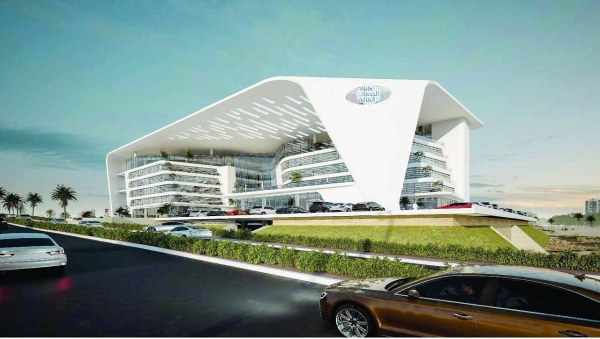Strengthening Investment Framework: What It Means for Business Growth and Opportunities in Oman

By Oman MarketNovember 22, 2025November 22, 2025banking sector economic reforms Oman financeWith 0 comments
MUSCAT: The Sultanate of Oman is accelerating reforms to modernize its financing system, boost economic competitiveness, and attract high-quality foreign investment, aligning with the goals of Oman Vision 2040. These initiatives are underpinned by a robust banking sector, improved credit ratings, and a strengthened legislative and regulatory environment.
Oman’s banking sector continues to show solid growth, with total credit increasing by 8 percent to reach RO 34.5 billion by the end of September 2025. Credit extended to the private sector rose to RO 28.2 billion, reflecting growing demand across non-oil industries. Total deposits expanded by 4.7 percent to RO 33.1 billion, driven by heightened private sector confidence. Approximately half of the private-sector deposits are held by individuals, with corporations and financial institutions holding the remainder.
The Islamic finance sector has experienced significant growth, offering a diverse range of financial instruments for trade, asset financing, and support to SMEs. Lending to SMEs now accounts for 3.7 percent of total credit, with a national strategy aiming to increase this to 5 percent by streamlining credit assessments, relaxing collateral requirements, and establishing specialized financing units within banks.
International confidence in Oman’s fiscal and financial stability remains strong. Standard & Poor’s reaffirmed Oman’s credit rating at BBB– with a stable outlook, while Moody’s upgraded the rating to Baa3, citing fiscal consolidation and a reducing public debt-to-GDP ratio as key factors. These credit enhancements bolster Oman’s attractiveness to long-term foreign investors.
Legislative reforms are transforming the financial sector. The new Banking Law enhances governance, regulates digital banking, and bans shell banks. Additionally, the creation of the Financial Services Authority (FSA) has centralized supervision of non-banking financial activities, including oversight of the Muscat Stock Exchange (MSX), insurance, accounting, and auditing sectors.
The FSA has introduced an incentive program aimed at encouraging family-owned firms, private companies, and high-growth SMEs to list on the MSX or convert to joint-stock companies.
Abdullah bin Salim al Salmi, Executive President of the FSA, stated that the program seeks to improve governance, expand financing options, and strengthen the capital market’s contribution to sustainable economic development. He highlighted capital markets’ role in providing flexible medium- and long-term financing tools such as equities, bonds, and sukuk, complementing traditional bank lending and spreading risk.
Oman is also broadening modern financing channels. Crowdfunding platforms have raised RO 14.9 million since 2022, offering alternative capital sources for SMEs and startups. The adoption of digital payments has surged, with annual mobile payment transactions increasing from fewer than 5 million to approximately 40 million over three years, supported by advanced national systems including RTGS, ECS, and mobile platforms.
Mustafa bin Ahmed Salman, Board Member of the Oman Chamber of Commerce and Industry, highlighted government initiatives such as the Capital Market Stimulus Programme, reinforcement of the Development Bank, and the establishment of Oman Investment Bank—the nation’s first specialized investment bank. The Promising Companies Market was also launched to support SMEs through simplified listing requirements and fiscal and operational incentives.
He stressed that the Chamber collaborates closely with government entities to enhance Oman’s investment climate, attract foreign direct investment, and promote opportunities across governorates. Committees within the Chamber, including the Finance and Insurance Committee, actively address sector challenges, propose regulatory enhancements, and organize awareness events like banking arbitration seminars.
Furthermore, Oman is advancing its fintech ecosystem with a regulatory sandbox that enables innovators to test new financial technologies alongside the development of an open banking framework. The Mala’a Credit Information Centre continues to grow its database on individuals and companies, improving credit transparency and supporting informed investment decisions.
With political stability, a strategic geographic location, and world-class infrastructure—especially in ports and special economic zones like Duqm—Oman is consolidating its position as an emerging, investor-friendly economy poised to attract quality investments for sustainable long-term growth. — ONA
Special Analysis by Omanet | Navigate Oman’s Market
Oman’s comprehensive financial reforms and strong banking growth signal significant opportunities for businesses, particularly in non-oil sectors and SMEs, supported by the expanding Islamic finance and capital markets. Smart investors should capitalize on enhanced credit ratings, advanced fintech ecosystems, and government incentives promoting transparency and diversified financing, positioning Oman as a promising hub for sustainable, long-term investments amid rising economic diversification efforts.



